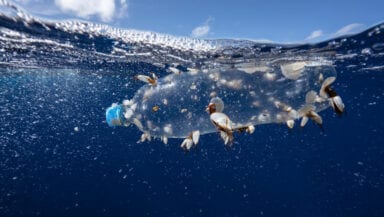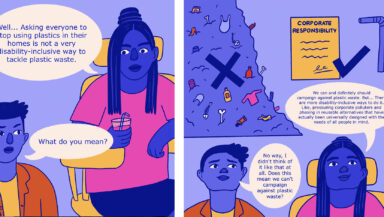The UK produces more plastic waste per person than almost any other country in the world, and many of us spend time carefully sorting our recycling. But what actually happens to the plastic bottles, yoghurt pots and plastic wrap we put out for collection?
Does our plastic recycling actually get recycled?
With the world waking up to the threat of plastic pollution, we’re being bombarded with adverts telling us to recycle more. Many of us take immense care when recycling, but what happens to it once it’s collected?
Household recycling gets taken to a sorting facility where people and machines separate the recycling into different types – such as aluminium cans, paper and cardboard, plastic and general rubbish. These can be pretty grim places, as my colleagues discovered when they went undercover in a West London centre a couple of years ago.
The government claims that almost half of the UK’s plastic packaging gets recycled, but that simply isn’t true.
Thousands of tonnes of our household plastic packaging put out for recycling, as well as other kinds of plastic waste ends up in waste incinerators in the UK. Incinerators are giant furnaces for burning waste, and they cause air pollution, noise, smells, litter and traffic as waste is trucked in and smoke pours from the chimneys. Incinerators are overwhelmingly located in low-income areas and neighbourhoods with more people of colour. Some also goes into landfill, where it can leach toxic chemicals into the environment.
But the rest gets recycled though, right? Wrong.
The UK is dumping our waste on other countries
Well over half of the household plastic packaging the government claims is recycled is sent abroad, most of it going to countries with very low recycling rates and a serious problem with plastic waste being dumped or burned illegally.
Unbelievably, the amount the UK sends abroad is the equivalent of three and a half Olympic swimming pools every single day.
The government claims all of this exported plastic gets recycled, but the truth is we have no idea what really happens to it because no one bothers to check.



